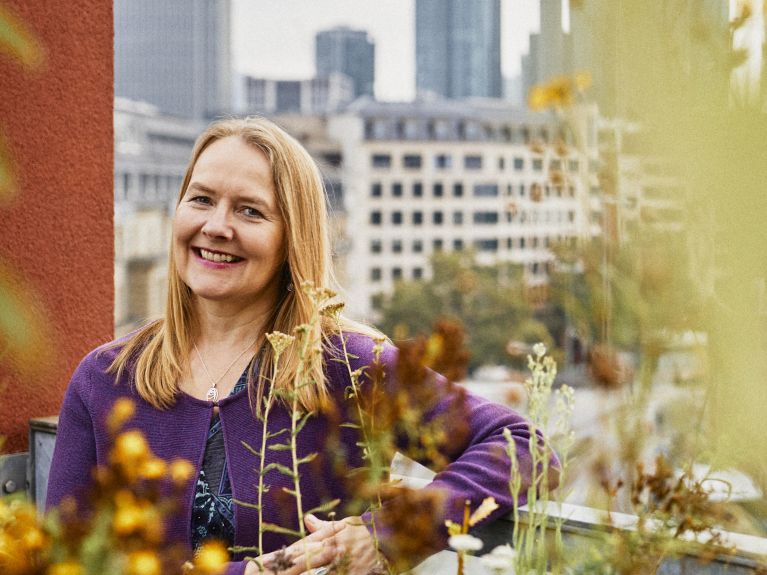“Unbureaucratic, fast and free of charge”
Anyone relocating to Germany from abroad is bound to have a lot of questions. The International Office in Frankfurt am Main assists those who are new to the region.

Amanda Ife is Communications Manager at the FrankfurtRheinMain International Office – the point of contact for people from abroad who want to come to Germany to live and work in the Frankfurt region.
Ms Ife, how does the International Office provide assistance for people relocating to Germany?
Everyone is welcome here, and that’s really important. We help people quickly, without bureaucracy and free of charge. We also offer initial advice. We have a lot of contacts in the region, so we can put new arrivals in touch with the right people and the relevant services. And we follow up, too - a few weeks after people have contacted us, we check to see whether they’ve managed to get the help they needed. We want people to achieve their goals.
What are they seeking to achieve?
Most of them are interested in working in the region. Some come from countries outside the EU, so they have questions about getting a visa. A lot of them ask about how they can get their qualifications officially recognised, too. Or they might be interested in the best way to learn German.
You yourself are Irish and have lived in Luxembourg, Greece and Switzerland. Are there any aspects that are specific to Germany in terms of relocating here from abroad?
People are often surprised by things like the TV licence and church tax that you have to pay in Germany. Most people aren’t familiar with this. And it’s challenging if you only have a limited knowledge of German. Even though people in Germany speak English quite well, there’s still a limited amount of official information available in English. However, that’s getting better.
One other specific feature about Germany is the rules. “Ruhezeiten”, for instance – the quiet times during the day when making a noise is prohibited by law. When can I do my vacuuming? When can I play my musical instrument? This is something that’s rather difficult for people from abroad to understand. Another aspect is the system of returnable bottles. A lot of countries have recycling, but returnable bottles is something that’s very specific to Germany.
Knowing whether to address someone using the “Du” or “Sie” form when addressing them is not so easy either, i.e. whether to be on first-name or last-name terms. Which is most appropriate and when? A lot of foreigners also struggle with the fact that Germans are relatively reserved, which can be misinterpreted as unfriendliness. Once people have been in Germany for a little longer, they realise that Germans are not actually unfriendly but just rather reserved.
Is there anything that makes it easier for people to settle in when they relocate to Germany?
You can rely on most things here. If you have an appointment with a handyman, you can usually rely on them turning up. That’s not the case in every country. And in the Rhine-Main region, a lot of people are surprised at how green and diverse the landscape is, how international the region is, and how much there is to do.

